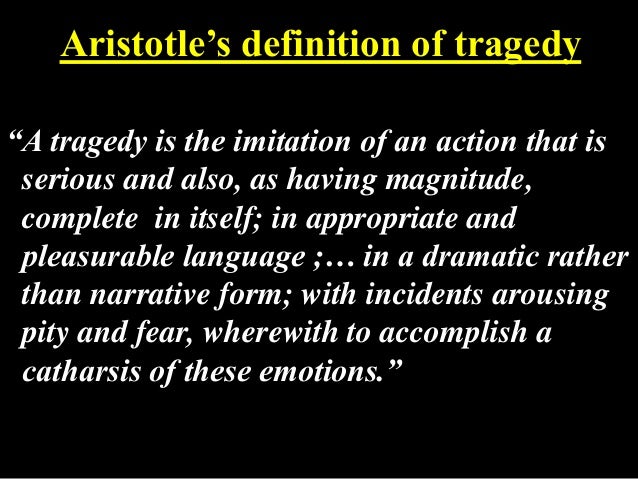
1) Do you find any difference between Aristotle's definition of Tragedy and Dryden's definition of play?

After the Aristotle's definition of the tragedy, Dryden was the first who tried to give a well-formed definition of the play. Before clarify the difference let's see the some points which we can find in both the definition. In the definition of tragedy Aristotle talks about imitation of action. While in the definition of play Dryden talks about a just and lively image of human nature. We find something is that, they both talk about imagination but in different way. Aristotle talks about pleasure and the definition end with catharsis.In his definition the element of instruction remains missing. While Dryden in his definition by using the word delight and instruction of mankind tries to move further than Aristotle.
2) If you are supposed to give your personal predilection, would you be on the side of the Ancient or the Modern? Please give reasons.
Of course, I would like to be on the both side of Modern as well as on the side of Ancient also. Ancient always represents a real story or situation. While moderns somehow imitate somethings or situation from the ancient. But they are not entirely imitate them. They present some new ideas as well as regarding the present situation.
3) Do you think that the arguments presented in favour of the French plays and against English plays are appropriate?
No, I do not think that the arguments presented in favour of French plays and against English plays are appropriate. The pros of French drama are pointed out by Lisideius and the cons are pointed out by Neander. Here I like to be on the side of Neander, the voice of Dryden. Lisideus argues that English tragicomedy is very absurd but its not true. In English plays they are very lively by nature and also it has plots and subplots which French drama don't have. As per Neander's argues that French drama are like lifeless and they does not have a subplots like English drama have.
4) What would be your preference so far as poetic or prosaic dialogues are concerned in the play?

Comments
Post a Comment